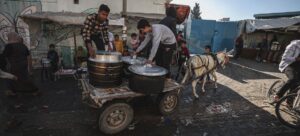
European Commissioner for Neighborhood and Enlargement Oliver Varhelyi spoke on Friday with the leadership of the House of Representatives and the House of Peoples of the Parliamentary Assembly of Bosnia and Herzegovina (PSBiH).
As it was pointed out on that occasion, the main goal of Varhely’s three-day working stay in as many as six Western Balkan countries is to present a new EU investment plan that will stimulate the entire region, but also to point out the need for countries aspiring to join the European Union.
Varhelyi pointed out that the European Union intends to provide nine billion euros in grants and more than 20 billion in guarantees, which is a third of the total GDP of the entire Western Balkans, and that thanks to this financial injection, GDP growth in the region would amount to 3, 6 percent, although there are those who claim that the growth figure could be higher.
He added that development projects that would mean real economic progress would be preferred in the placement of these funds, and pointed out the most interesting areas as the infrastructural connection of the region’s capitals, strengthening the broadband internet network with the aim of establishing a new digital economy, energy, and the field of education and the creation of an attractive and prosperous region from Bosnia and Herzegovina in which young professionals will seek their future.
Also, he welcomed the Little Schengen initiative as an opportunity for an easier and faster flow of goods, investments and services between the countries of the region.
In particular, the Commissioner of the European Commission expressed satisfaction with the fact that the conditions for holding local elections in Mostar have been harmonized, as well as the Strategy for Work on War Crimes Cases. The members of the leadership of the chambers agreed with Commissioner Varhelyi that it is necessary to work intensively in BiH on creating a favorable investment climate, which implies a whole series of reform measures in various fields.
The fact that after the establishment of the government, the process of fulfilling the 14 priorities necessary for obtaining EU candidate status was strongly initiated was positively assessed. The expectation was expressed that this big step towards the EU could be made by the summer of 2021, and it was emphasized that cooperation with the international community is very desirable in these development processes, but that a solution needs to be reached primarily through intensive dialogue and action of domestic political actors.















